Look, I don’t want to be the bearer of bad news right at the start of the new year, but…you’re going to die.
I don’t know when, I don’t know how, but we are all going to die. We spend our lives avoiding thinking about it, but it’s the one true unavoidable event. And we don’t really prepare. Those of us who have children tend to be better about doing at least a minimal amount of emergency planning — but how often do you think of your artistic children? Artists, on the whole, are terrible about planning for what will happen to our works — our legacies — after we are no longer around to take care of them. Many artists don’t even consider this unless they have reached the level of incorporation or branding at a company level. Setting up a corporation forces you to think of what happens to the creative content of your business and what happens to it once its creator is no longer present (or actually, the lawyers you hire to set up a corporation force to you think of it and put the terms down on paper). Unfortunately that leaves a lot of orphaned art in the world. It’s a sad statistic but most art will expire along with — or very soon after — their creator. Even in today’s hyper-archived world this happens constantly. Once the social media profiles stop being updated, and the domain name registrations run out, an artist’s work can easily be lost. From a business point of view, this can often mean a loss of income for a family. From a personal point of view, this is a tragedy for fans, family, and the art world.
I was reminded of this while watching the Finding Vivian Meier documentary recently on netflix. Vivian Meier was an unknown street photographer that worked from the 1950s-90s, and her work was only discovered by chance at an estate auction. Once the negatives were found and started to be looked at properly, her work was lauded as a great undiscovered treasure of images and toured the globe. She died without a will and without anyone knowing what to do with her art and it was only luck that anyone saw it. And it’s not just unknown or lesser-known artists who die without wills. Did you know Aretha Franklin, Prince, and Amy Winehouse did not have wills?
The issue of artist wills is obviously embedded in a larger issue of personal wills. I am not a lawyer, and I can’t give legal advice, but I strongly recommend you have at least a minimal personal will and testament (aka “in case of death” plan). I want to stay focused on the creative side, but sites like Legal Zoom can walk you through setting up a general legal will online for less than $100. (While you’re there think about Living Wills/Healthcase Directives and Power of Attorney too, in case of extreme injury.) Until you do that, however, it’s important to at least have an unofficial will. While people could fight an unofficial will in court, in most cases that’s not going to be an issue. People just want to know what you want them to do. The important thing is to decide how you want things to be divided, how you want things to proceed after your death, and name the person(s) that will be in charge of your estate (make sure they know, by the way). Whereas an official will needs witnesses and to be registered, an unofficial will can be made anytime. Like today, for example.
As someone who has been party to dealing with the extremely difficult period of dealing with someone’s affairs after death, let me tell you how much anguish a small amount of planning can save your loved ones. Things as simple as computer passwords, knowing what bank accounts you have, and knowing what to do with your social media accounts is an immense help to distraught friends and family. It is a comfort for people to know exactly what you want them to do so that they don’t have to guess or disagree. Many people think oh, what the hell, I’ll be dead, it won’t matter, I won’t care! But you’re not making a will for you. You’re making a will for the people you leave behind. Don’t think of a will as “who gets my stuff after I die” but more “let me leave clear directions for my loved ones so they don’t have a giant pile of paperwork and computer files to deal with and no roadmap”.
Think about this for a moment: Is your parent/spouse/child an artist? Do they even know how to open a photoshop file? Wouldn’t you like to name a peer artist & friend who can walk your family through files, show them how to preserve what they want to keep, and potentially be able to donate your works to a professional organization or continue to sell them to pay for your children’s expenses? I know it’s morbid to think about, and upsetting, but what if your family wants to make a collected book of your work? What if your work is considered important to a certain field or genre? A little bit of planning preserves your art for generations. Unless you talk about these things and plan a bit in advance, chances are your work is going to slowly disappear as soon as the dropbox bill stops getting paid and the time machine backup stops running. Works in traditional medium can be distributed, but even traditional artists have digital prints and portfolios. Digital-only art can be lost so much more easily than Vivian Meier’s trunk full of negatives.
Neil Gaiman wrote a fantastic post about this way back in 2006, with a free to use template (and instructions) for an Artist Will. You may have to alter the wording a bit because it was meant for authors, but can easily be adapted to any creative. It’s good for a quick informal will, can be easily legalized in most places either by writing it by hand, having witnesses sign it, by getting it notarized, or by taking it to a lawyer (legality depends on the laws in your specific geography). He had this to say and I agree wholeheartedly:
There are writers who blithely explain to the world that they didn’t make a will because they don’t mind who gets their jeans and old guitar when they die but who would have conniptions if they realised how much aggravation their books or articles or poems or songs would cause their loved ones (or editors, anthologists or fans) after their death…
Writers put off making wills (well, human beings put off making wills, and most writers are probably human beings). Some of us think it’s self-aggrandising or foolish to pretend that anyone would be interested in their books or creations after they’re dead. Others secretly believe we’re going to live forever and that making a will would mean letting Death in a crack.
You can add anything you want to this will, and I strongly advise you to add a list of passwords to sites and devices. This is also a good excuse to set up that password keeper you’ve been thinking of installing. I use LastPass, and you can add literally everything to it — of course websites, but also bank accounts, important document scans, etc. — and you can just keep the main password updated & kept with the will. There are also a number of services that let you set up messages and files for people that send out in the event of your death: IfIDie.org, After.me, Afternote, and DeadMansSwitch.net are a few.
To sum all this up:
—We’re all gonna die.
—Estate Planning isn’t for you, it’s for your loved ones.
—Better to have an unofficial rough will than no will at all.
Happy 2019!



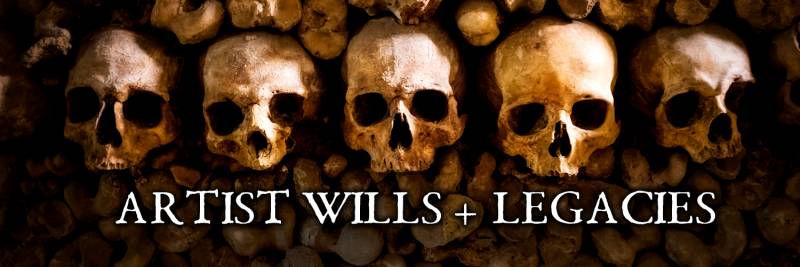
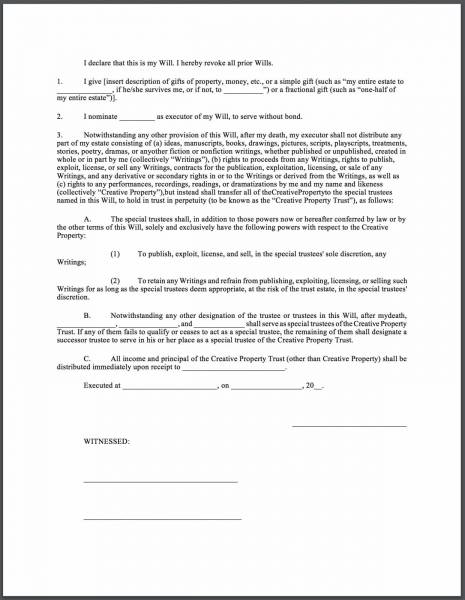
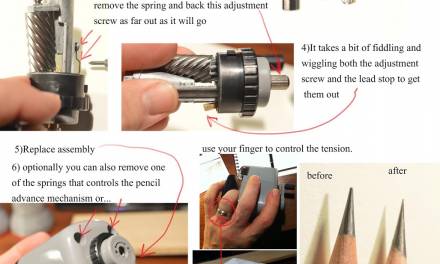

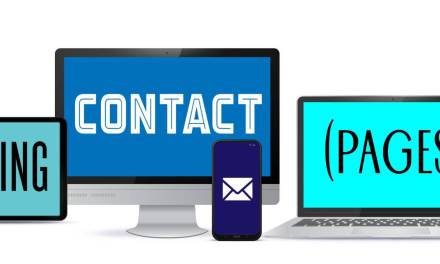
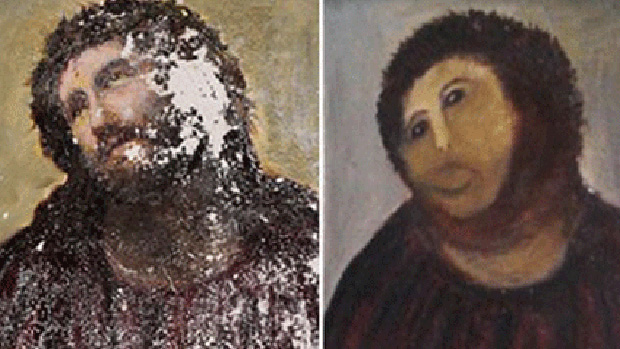

Great topic, thanks for posting about this Lauren. All artists need to consider what will happen to their artworks after they die. I need to think further about it, but I’ll probably just donate everything to The Getty, The Louvre, The U.K. National Gallery, The Metropolitan Museum of Art, etc.
😉
What a terrific subject. Cheers for the post! And good on Gaiman.
Morbid but necessary.